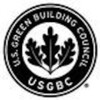How is this relevant to the fact that people may still use the title LEED AP without needing CEU hours or keeping themselves up to date on current building practices? I would love for someone to explain what benefit there is to upgrading, I am only seeing negatives.
You rely on LEEDuser. Can we rely on you?
LEEDuser is supported by our premium members, not by advertisers.
Hi Zachary,
Having the specialty credential shows clients, colleagues and employers that one's knowledge of LEED and green building is current and being actively cultivated and maintained. We feel that the market is recognizing the difference. Like LEED certification, it's a third-party verification that a professional is rigorously keeping up to date with his or her knowledge of quickly evolving principles and practices.
Beginning with LEED V4, only a specialty credential will earn a project the ID credit for having a LEED professional on its team.
And although we will never revoke the LEED AP credential, USGBC/GBCI will eventually phase out its support services for LEED APs without specialty, such as their listing in the public LEED Professional directories.
I have to disagree with you Erin, as someone who is a LEED AP BD&C I do not like or think it wise to have people still able to be just plain LEED AP. USGBC could 'upgrade' them all to LEED GA if they do not pick a specialty. This would weed out the people who no longer wish to be a LEED AP.
Similarly, almost every Engineer or Architect would never allow the PE or AIA name to be tarnished with people who never complete some form of continuing education, USGBC is once again making a mistake in my eyes. I am sorry if you feel differently, but people respond better to having something taken away than being given something.
Erin, LEED APs were made aware that their credential would never be revoked, but when was the decision made to "eventually phase out its support services for LEED APs without specialty, such as their listing in the public LEED Professional directories"? It was my understanding that USGBC, at first, placed LEED APs on an "inactive" list, but this was withdrawn given the outrage expressed.
Zachary, how can you equate a LEED credential, earned by some simply studying a few documents, with a PE or AIA, earned through a multi-year college education program and work experience? Whether you like it or think it wise, prior to LEED 2009, it was these very 60,000+ professionals who were instrumental in elevating USGBC to the position the organization enjoys today in the field of sustainability. And we did so by self-educating ourselves while educating USGBC. In the majority of instances I agree with the Specialties and CMP, but I will never understand why anyone, including USGBC, disparages and belittles LEED APs. Being retired from the active workforce, since 2008 I’ve dedicated myself to educating and tutoring thousands of LEED candidates around the globe, often at no charge to impoverished people in third world countries. I simply have neither the desire nor time to pigeon-hole myself with one or more specialties.
BTW, these changes are great and will be welcomed by all.
Larry,
I agree the first LEED APs were integral in creating what is the current situation, so why was there not a General LEED AP created or the LEED AP title kept and you 'could' specialize. LEED APs would still have to perform CEUs pay a fee and the specialties would be that showing that you are an 'expert' in the subject. On the side Green Associate is such a bad title I doubt anyone would ever try to get just that and not get their LEED AP immediately.
My main question is 'Did the existing LEED APs feel they had done enough and didn't want to have to do more?' The USGBC seems to have written the laws as such. I would be happy to listen to some other profession where there is a credentialing system similar to this that is taken seriously. That is what the USGBC wants is it not?
I honestly, feel until USGBC addresses some of these issues, they will continue to be something that people 'game' to gain the tax credits, status or whatever they want from the organization.
-Zach
Zach said, "Similarly, almost every Engineer or Architect would never allow the PE or AIA name to be tarnished with people who never complete some form of continuing education..."
My State does not require PE's to have any continuing education. I am also licensed in 2 other states that do require continuing education of 8 hours and 30 hours. It is very dependant on the state. Some states will even allow a person to be a PE without having a 4-year degree from an accredited university. I wouldn't say the title is tarnished because of the various levels to compliance. The title has meaning and value because the authority (states) gives it meaning and value.
Likewise, if the GA title has little value to you then it's a result of the authority (USGBC) not giving it any value.
Testing has little to do with the knowledge required for a engineering or architecture job.
I have a PE license. The knowledge required to pass the test is not knowledge you will use again.
I started on the path to earn a Architecture license, but stopped after a few tests. The cost of renewing the license did not seem worth it.
What is most important about testing, is not knowing the answer to a specific question, but knowing how to solve a problem using available resources and knowledge learned from past experiences. Experiences can come from anywhere, they do do not need to be related to what you learned in school or a university.
Bill,
I honestly, would like to see some value to the LEED specialties. This is the crux of my argument from the beginning. What is the point of the specialties except for more letters and you need CEUs and pay a fee.
Sure people in the 'know' know what the difference is, but if you walk up to someone on the street and say hi I am a LEED AP or LEED AP BD+C they will not know the difference.
I am honestly curious how many people care about the differences.
EDIT: I would happily trade my LEED AP BD+C for a simple LEED AP status where I do not have to do CEU and pay a renewal fee.
I work with a lot of people who have LEED APs with specialties. What I find is that most have no clue how to document or manage a real LEED project. Yes, they passed the test and maintain their credential. But, a maintained credential has little to do with certifying an actual LEED project.
Well, my experience has been the opposite. I am a LEED AP with specialty and I have worked with LEED APs who are clueless. My current office is better than my previous one. I still knew many LEED APs who studied and passed the test easily and then did not care anymore.
I don't understand your point.
A LEED AP maintained credential is not a guarantee that an individual can completely manage and document a LEED project from start to end.
A LEED AP credential that is not maintained does not mean an individual cannot completely manage and document a LEED project from start to end.
Just so you know, I met the maintenance requirements for my credential within the first six months of the reporting period. Before the first year was up I could meet the requirements by solely following two different paths. I have over maintained my credential.
I have also helped a lot of LEED APs document LEED credits, and I let them claim the credential maintenance hours as long as they do a significant part of the work required. I give away a lot of credit hours. That is the way it should be, in my opinion.
Add new comment
To post a comment, you need to register for a LEEDuser Basic membership (free) or login to your existing profile.



